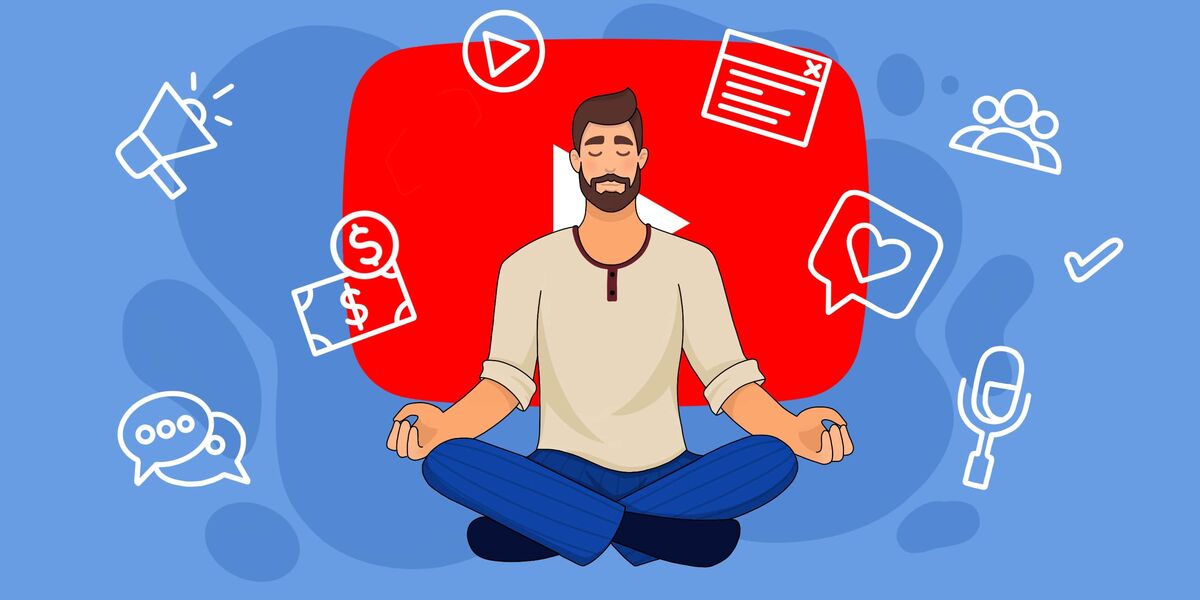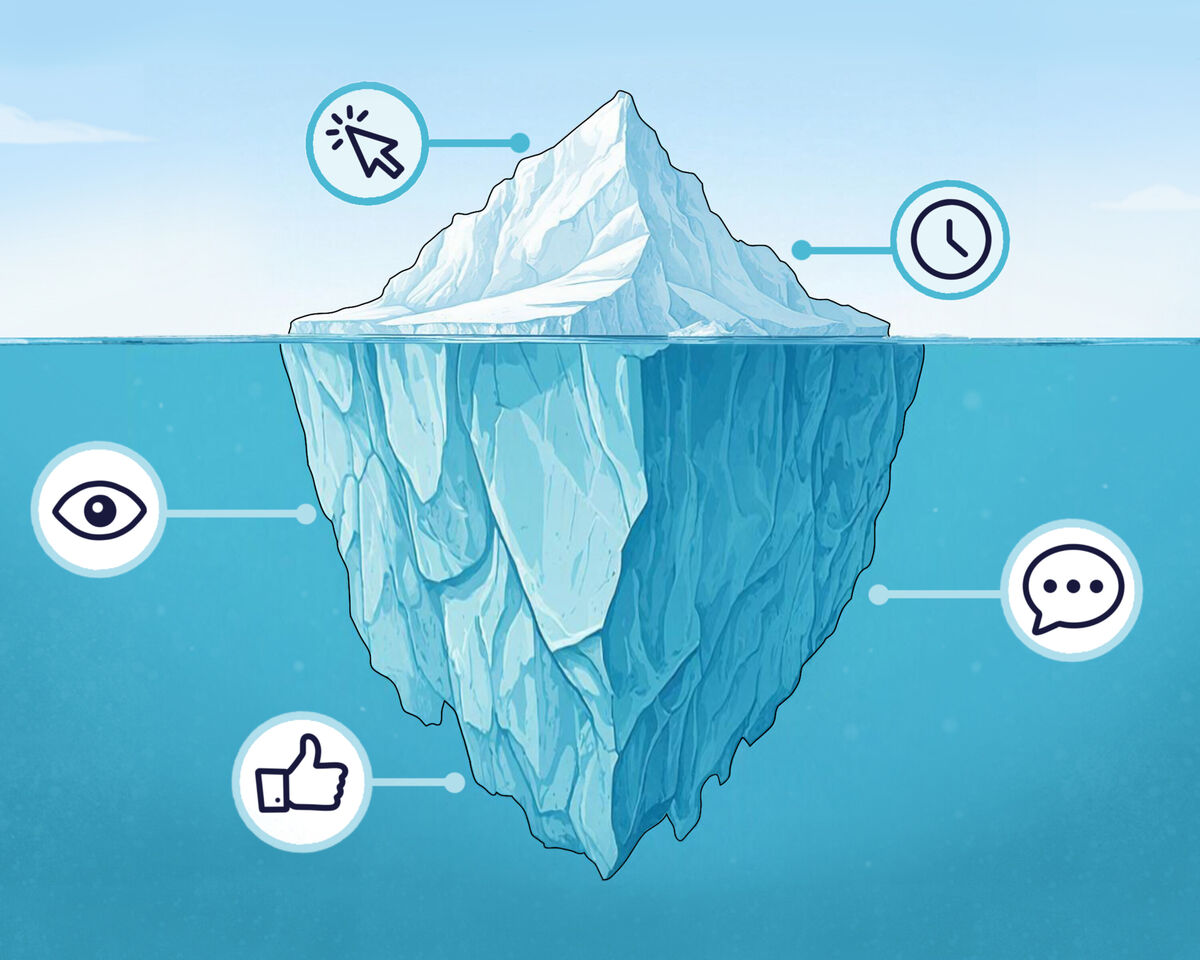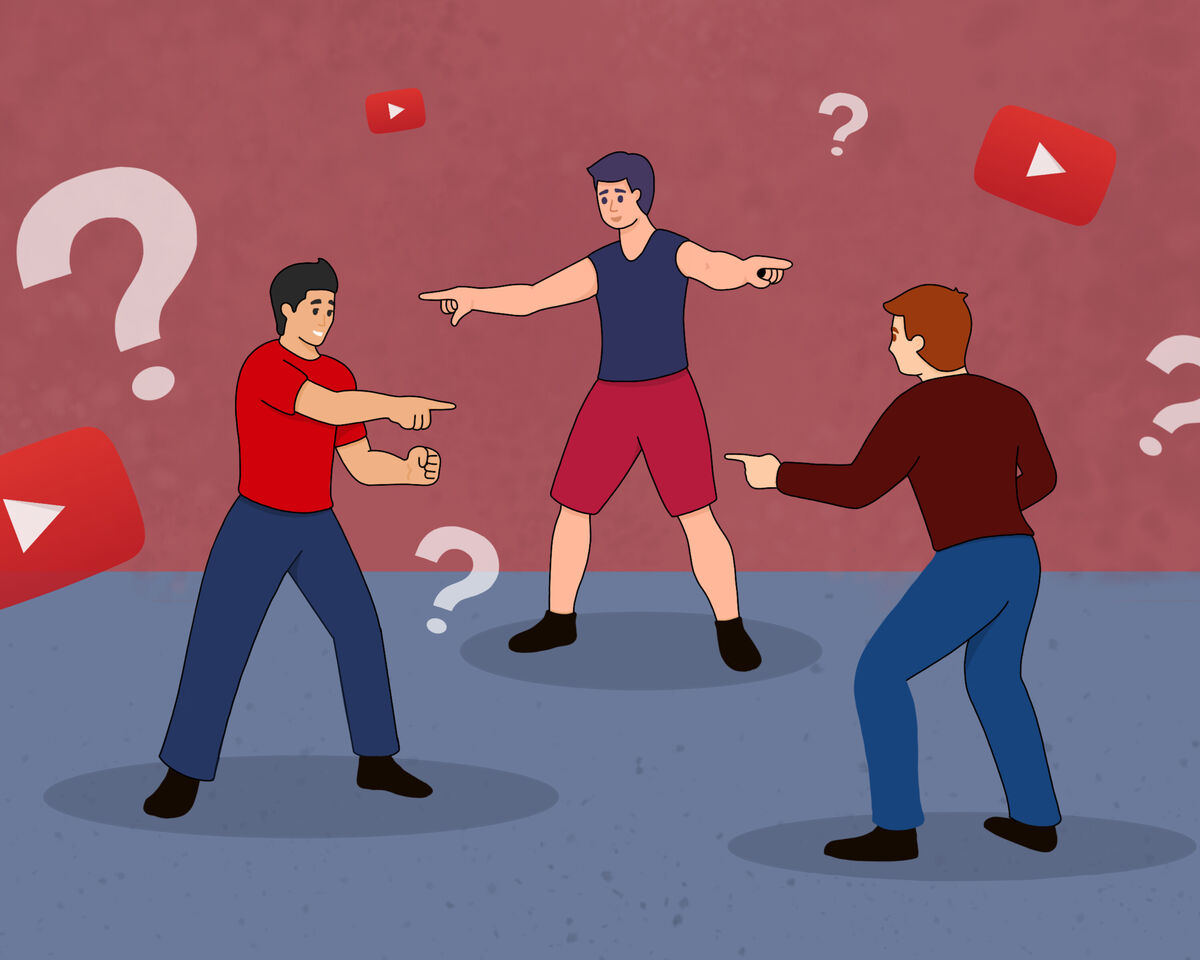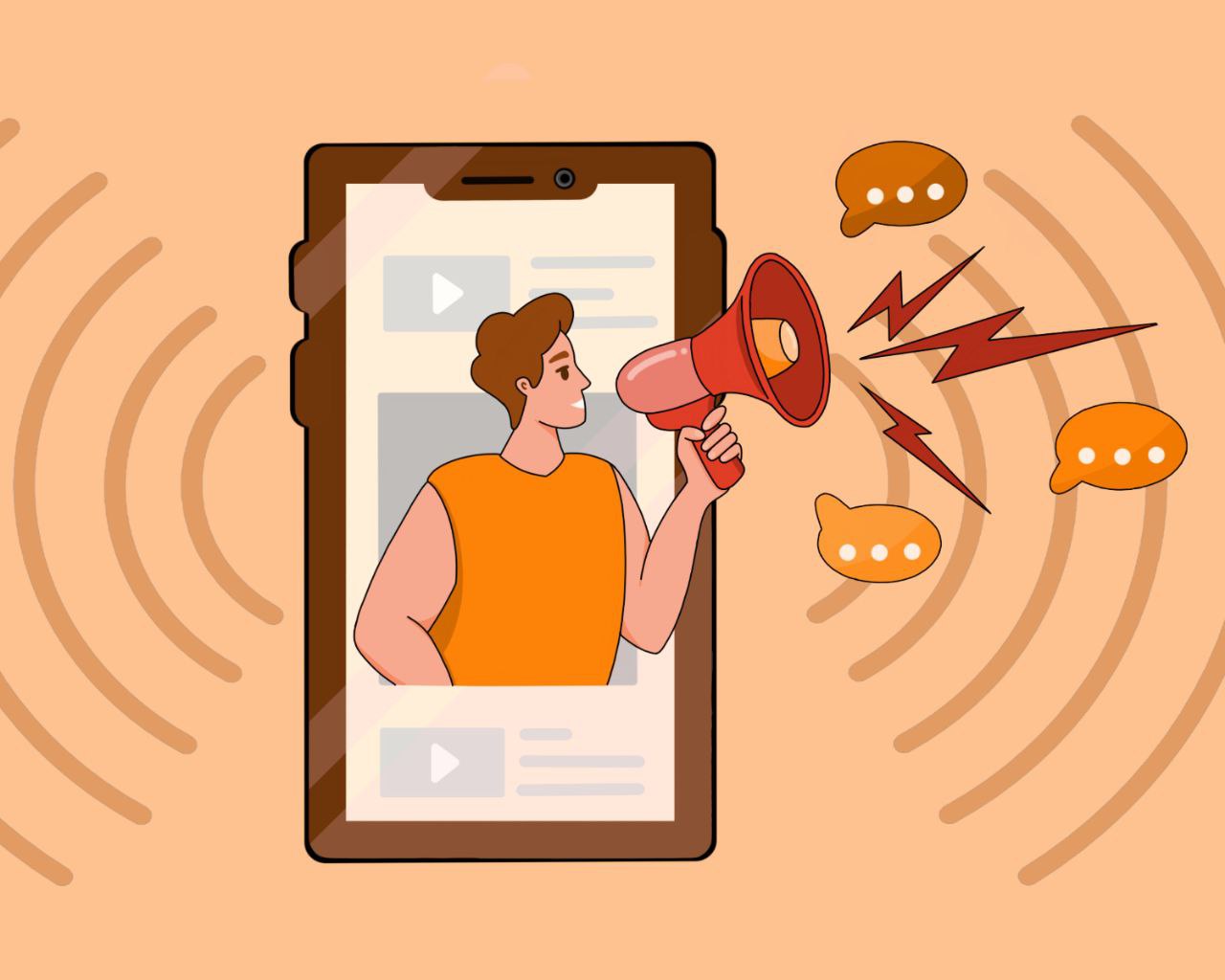Dreaming of YouTube success? These Hard Truths Are The Key to Growth!

Many bloggers haven't yet learned from their own experience why YouTube favors some creators and ignores others. Why channel metrics seem good, but there's still no audience engagement. Why viewers don't properly appreciate quality, interesting content, and so on, and so forth...
The fact is that YouTube has its own rules, which you either figure out for yourself based on years of experience running a channel, or with the help of people like us, who have both our own hard-earned lessons and experience managing client channels.
Fierce competition on YouTube today
Yes, it's absolutely not the same platform that YouTube was 7-10 years ago.
First, YouTube today is part of Google corporation, and they are closely interconnected. Second, it's a platform with a multi-billion audience, and today people not only create channels for themselves but develop entire businesses here.
In 2025, we as creators have to think roughly like this: "If I have a goal that includes success on YouTube, then I must run my channel from a professional perspective, not as an amateur. And what do I need for this? I will have to develop a business and compete with other similar channel-businesses."
There are no fast results on YouTube
Have no doubt, we know that feeling perfectly well - when you upload your first videos, update the statistics every minute, and expect to wake up rich and famous tomorrow.
And only after years do you realize how much effort, time, and finances you had to invest to grow even one worthy channel.
So it's best to set aside your expectations of a quick rise or random help, and instead focus on what you can realistically do with your channel.
There are no clear-cut metrics of success on YouTube.
What is normal for an educational channel will never be normal for an entertainment channel. You can't evaluate YouTube achievements based on any specific person; metrics for each channel should be unique, as we simply don't know what's behind the success of any particular creator or channel.
The educational niche will always be less in demand than entertainment, and it's normal when an educational channel has fewer views than subscribers, because not every video you make will be relevant to all viewers.
For example, you started a YouTube channel and subscribed to some expert to improve your knowledge and learn about optimization- as an example. But some more complex videos by the same creator are simply not necessary for you right now. You'll get to them over time, or maybe you won't get to them at all because the level you decide to stop at will be sufficient for you. And that's absolutely normal.
At the same time, if you subscribed to a channel with funny videos, you'll likely be interested in all of them that exist and will appear on the channel. Because they're all about the same topic — entertaining viewers.
Play the rules
When we travel to another country, we must respect its traditions and laws; otherwise, we might get fined or end up in jail.
The same applies to platforms you want to work with: you must know the conditions the platform offers, and it has the right to exclude you from its community if you don't follow these rules.
Yet people still continue to complain when the platform files a copyright claim against their videos. Would you argue with a police officer in another country if they tell you that you've violated their rules, and you really have violated them? Similarly, it's not worth arguing with YouTube.
No cheating
Cheats, fake boosts, magic key combinations like in The Sims or GTA - all of these only work there.
There are no magical tactics on YouTube, but there is a promotion strategy. There are no magic buttons, if you're not ready to invest financially in promoting your channel and content.
You won't hack the algorithms because most people don't even understand how they work. Do you really think you're smarter than the thousands of people who work on the platform?
No one cares who you are until you give the world something special
Why do you think some movies become classics, while others fall into category B, and the world doesn't even know about them? Hardly because great directors or screenwriters hacked the algorithms of the film industry.
Today, all of Hollywood's schemes and structures have been thoroughly analyzed, thousands of books have been written, and hundreds of videos have been made about how to make good cinema. But for some reason, not everyone becomes directors and screenwriters, and of those who do, not all find success.
Some of them are convinced that viewers don't understand them, and that the world is against them. They learn nothing and sink in the swamp of their own ambitions.
Others work hard, try again and again, and finally, after going through all the trials and testing numerous tactics, they find their unique path, their vision, and give viewers what they want.
And this doesn't always have to be some unique idea; it could be a banal comedy, but one that people enjoy watching. It could be another superhero movie, but one that's genuinely well-made. Or it might indeed be a unique reinterpretation of an already familiar story.
YouTube works exactly the same way: you don't necessarily have to create a masterpiece and look for something nobody has done before. Everything has already been done before you. But if there were only one entertainment channel left on YouTube, there would hardly be many viewers.
That's why another ordinary vlog about life won't grow and develop unless you're a master of improvisation and a charismatic person. But a vlog that's unique in atmosphere and presentation will definitely find its audience.
Another channel reviewing gadgets will get lost among thousands of similar channels. But a channel with unusual reviews in extreme conditions will certainly stand out among all others. Do you catch the idea?
Everything on the Youtube has to be balanced
"‘In everything’ truly means in everything: don’t obsess over analytics — it’s better to just do something and see what results you get.
There’s no need to perfect every idea — YouTube isn’t cinema. Just record a video, at least try — that’s how you’ll learn something new faster.
Don’t pour crazy money into equipment either — a smartphone is enough to start trying yourself as a content creator. And so on.
In topics, in analytics, in developing ideas, in buying new gear, in the quality and quantity of content on your channel — everything needs balance."
You won't be able to fully engage with YouTube in your free time.
It's sad, but it's true. If you're making videos that require concept development, filming, and editing — that's a full-time job. Moreover, in an ideal world, it's a job for an entire team.
A YouTube channel is structured and consistent work. Ten years ago, bloggers could afford to post randomly “just for fun,” but now YouTube is a business. And a business isn't built “in your spare time,” nor is it grown by a creator alone.
Forget about the fact that you will start making money on the platform in the first year
Some people still believe they can come to YouTube, upload a video, and instantly start making huge money.
We’ll tell you even more: even if your channel is monetized, an educational channel will, at best, start paying for itself in a year or two. An entertainment channel may take even longer, as viewer ad rates there are lower.
So don’t set those kinds of expectations—focus instead on building not just a channel, but a community with an engaged audience. Because that—not your subscriber count—is what will truly attract advertisers.
How much you invest in YouTube is how much it will return to you
We’re not talking about finances now—we’ve already covered that. This is more about the return you get from the platform in terms of promotion.
If you upload videos only once a year, your subscribers will show up just as rarely. It’s that simple.
No plan, no way to develop the channel
If your mind is a mess when it comes to your channel’s theme or video content plan, then your goals will also be reached chaotically—or not at all. Without a clear position and confidence in what you love and know how to do, nothing will work out.
When you go on a hike, don’t you think in advance about what to bring, what you’ll eat, and where you’ll sleep? It’s the same with YouTube—you need to carefully consider what you’re bringing with you and what you might encounter.
Sure, you can go on a spontaneous trip without a plan, but the outcome of such a journey is unpredictable: you might have a great time, or—returning to the point about rules—you might end up in jail.
You'll have to deal with haters
As soon as they show up on your channel, you can tell everyone you’re a successful blogger. And they will show up—to wear you down, hit where it hurts, and do everything they can to devalue your work. You’ll constantly get messages telling you you’re doing everything wrong, trying to humiliate and wound you—because this world is full of envious and insecure people who honestly deserve only our pity.
Many haters even hide behind a mask of virtue, saying things like, “Hey, I’m just giving you constructive criticism, don’t take it personally, you’re great, but…”
Don’t be fooled by these manipulative tactics—they’re just trying to boost their own egos at your expense. Until you ask your viewers for their opinion, any negative comment is just hate. Just like we, as creators, must remember that viewers are real people, they too must remember that there’s just a human being behind the screen.
You have to be brave enough
And you’ll need that courage in many, many situations—whether it’s standing up to haters, or rather, not taking their bait. It takes courage to do something risky on your channel, and courage to reach out and build connections with advertisers.
But the greatest courage will be needed for one thing: experimenting with your content. And yes, it will be scary—because experiments can fail. But you’ll have to do them anyway. Otherwise, your channel will stop growing.
Please remember one important thing: there are two types of creators who fade away—the ones who give up after their first setbacks, and the ones who try to “hack” the algorithm. Both get lost in unrealistic expectations that crash against the hard truths of the media industry.
And finally, the last thing we want to say today is—
The entire path of a blogger on YouTube is a series of ups and downs.
YouTube is tough. It's exhausting. You'll get tired, even if it's about the topic you love.
You'll have to learn a lot and work hard to stay competitive with other creators on the platform and keep your audience engaged. Over time, communicating with your subscribers will not only be something you give, but also something that drains your energy.
People who have ever worked in fields involving a lot of interaction with others will understand exactly what I'm talking about. This doesn't mean you don't enjoy your channel or that you don't care about your subscribers — it means you're giving your all, pouring your whole self into what you do.
In moments like these, never forget two things:
- You need to delegate part of the responsibilities on your channel in order to keep growing while still giving yourself time to rest.
- You need to take breaks in order to recharge your energy and resources.
And you know what? It seems to us that you've already worked hard enough today — reading through our content and once again trying to figure out how YouTube works. That deserves a good rest. See you in the next article!




